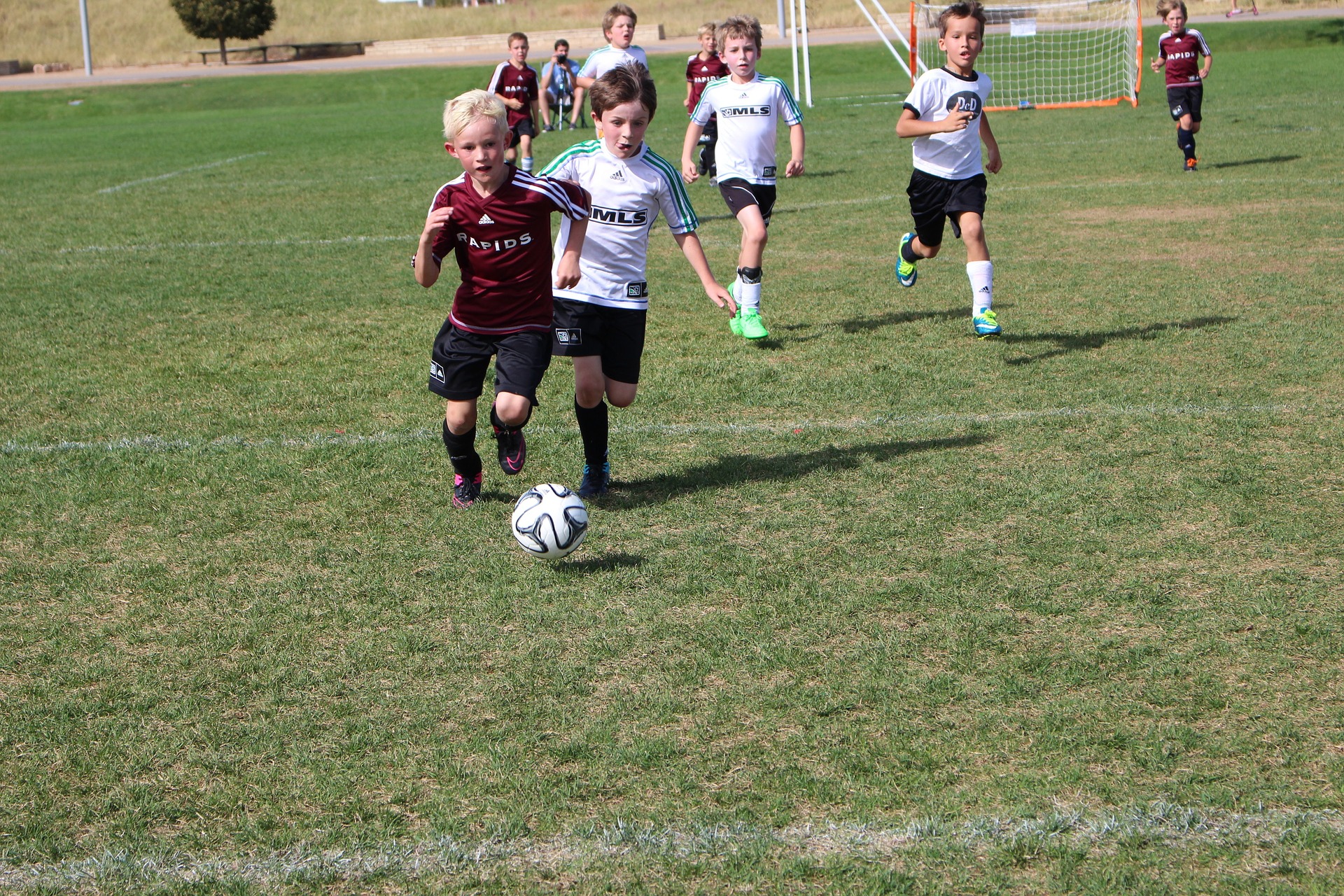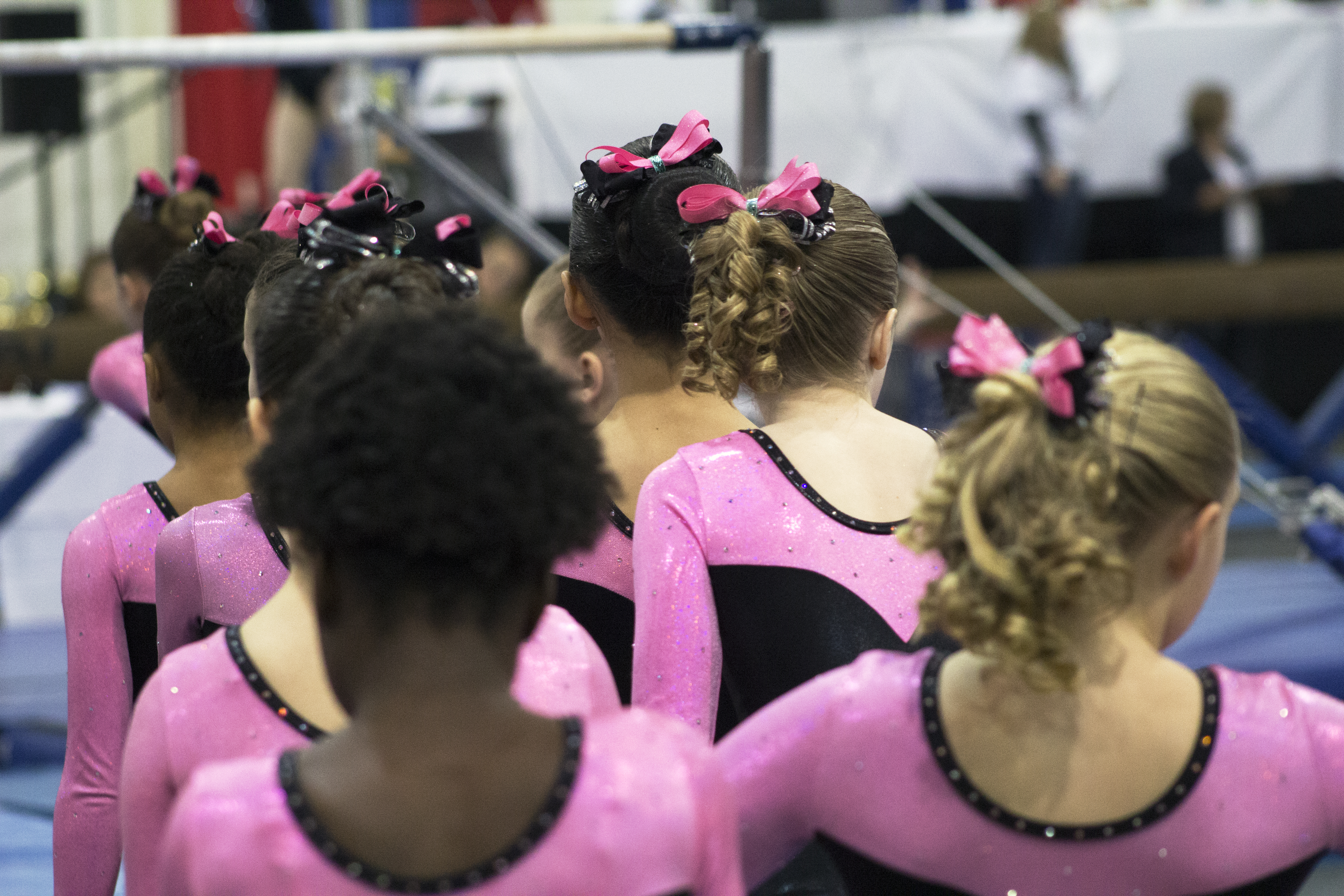
I recently watched Chris Bell’s documentary Trophy Kids about the extreme parenting of youth athletes. The documentary provides some very good examples of how NOT to parent a child through their athletic endeavors and it got me thinking about my own athletic career and my parents' actions through the process.
I had a pretty typical athletic career. I played multiple sports growing up and spent a lot of time outside playing with neighborhood kids. In high school I played baseball and football and ended up playing football on scholarship at Delta State. In college I wasn’t a standout but I got playing time and contributed to the team’s success. After graduation my football career, along with any other organized team sports, ended and I took up the iron sports to remain competitive. While I never made it to the pros, I did get a really affordable college education and many invaluable life lessons along the way.
WATCH: A Better Way to Train High School Athletes
Through my own athletic career and through of development of young athletes at my facility, I have witnessed a lot of positive and negative parental techniques in regards to the sports development of youth. This article will be short list guide of things NOT to do when parenting youth athletes.
1. Don’t let your love or support hinge upon your child’s athletic success.
Neither one of my parents have a lot of knowledge about football. My dad played briefly growing up but focused primarily on basketball and my mom still really wasn’t sure what position I played even in college. “He puts his hand on the ground and tackles people,” she said. We didn’t grow up massive college football fans who went to games every weekend or got dressed up in our team’s colors. In fact, I didn’t even start playing football until I was a sophomore. Looking back, I feel very lucky this was the case. My parents showed up to my games, gave me a hug afterward, and told me they loved me, win or lose. We never talked about how great I did or what I could have done better. I never got “coached up” by my parents. They came to my games because they loved me and wanted to support me in my endeavors.
In my experience, children hate being coached by their parents. I have never seen a chid respond positively to their parent yelling at them from the side line or from the lobby chairs while their children are training. This is why many facilities don’t allows parents to be present during their child’s training session. Likewise, children don’t need to feel their parents support or love hinges upon how they do. Their coaches, their teammates, and their fans support and love for them can hinge upon their success (example: death threats sent to Michigan’s punter this past season), which is whey they need to know someone has their back no matter what. Whether your child is just starting tee ball or playing in the Super Bowl, go to their games, give them a hug, and tell them you love them. Leave the coaching and criticism to someone else.
2. Don’t schedule your life around your kid’s sports schedule.
One thing that vividly sticks out in my head from youth sports was always being the last one picked up when practice was over. If practice was after school, I was with out a doubt going to be chilling by myself for a while. Some parents would show up early and wait for practice to be over. Some would pull up shortly after we finished. Mine would show up right when my coach was getting to leave. Why? They were both at work earning a living. They wouldn’t let me play travel baseball because they didn’t want to travel every weekend; they didn't want to give up all their vacation time to watch a bunch of little kids play baseball all summer. My parents taught me a strong lesson very early in life: The world does not revolve around you. This was hard to accept as a kid because all my friends were doing it. Their parents were making all these sacrifices. Guess how many of those kids are now playing in the majors? Guess how many even played in college?
When parents rearrange their entire lives around their children’s sports schedules, they teach kids that the family revolves around them. My mom used to say that family is important but no one in the family is more important than the others. At different points, each person is going to be the most important at that time and the rest of the family will support them. This meant going to watch me play baseball, going to watch my brother in the band, going to watch my mom sing in the choir, or going to one of my dad’s Harley rides. When a child grows up with the rest of their world revolving around their schedule, they have a hard time adjusting to a life where that is not a reality anymore.
3. Don’t let sports be the only thing they are exposed to.
When I was in high school, I thought I would definitely be a pro football player (I also thought I would be a professional cowboy in sixth grade) but when I actually got to meet some future pro football players, I realized that was not in the cards. I played my last football game ever at the age of 22. Your perspective changes as you grow older and what seemed like the only important thing in life quickly becomes forgotten later on down the line. I’m thankful my parents exposed me to a multitude of other experiences outside of sports. I learned to enjoy music by playing different instruments and singing in the choir, I learned to enjoy the outdoors through camping, hiking, mountain biking, and rock climbing, and I learned to enjoy different forms of art by going to and performing in plays. Along with these experiences I had to keep my grades up.
RELATED: Lessons for Parents, Coaches, and Players
I played a bunch of different sports, everything from Taekwondo to hockey, and I weight trained almost every day from age 14 to 18; I was definitely a meathead. I love training and I’m very thankful for my time in sports, but looking back I’m glad my identity wasn’t tied into one activity. If it had been, I don’t know what I would have done once that last whistle blew. Life is awesome and there is so much out there for children to be exposed to, soak up, and develop from that it’s a crime to limit that. I’m not saying to keep your kids from playing sports, I’m just saying don’t let that be all they do. Let them learn to play an instrument, take them to a museum, make them actually try hard on the science experiment, and make it so they’re prepared for a life outside of sports.
4. Don’t fail to realize the power of genetics.
In eighth grade I was about six feet tall and weighed around 135 pounds. Both of my parents are skinny, my brother is skinny. I didn’t like being skinny so I started lifting weights and eventually started following a nutrition plan. I ended up graduating at 6’2” and 225 pounds. I was religious about my training and eating. I would train extra after practice every day. Even in college I would stay behind and train extra and was constantly on some sort of nutritional plan (“see food, eat food" helped me eventually get up to 265). Despite all the extra training and all the extra eating, I still wasn’t the best player on the team. Hell, I wasn’t even the best player at my position. I commonly got my ass beat by guys who were bigger, stronger, faster and bullshitted through every weight training session and ate skittles all day.
All the hard work and effort I put into training and nutrition allowed me to play college football but it wasn’t enough to over come whatever genetic limitations I had that prevented me from playing professional ball. That’s not to say I couldn’t have been better than I was with some more intelligent training and nutritional habits (I never did any sports development like we do at NBS Fitness) but I highly doubt it would have been enough to propel me to fame and fortune as a professional athlete. Sports development is great for youth athletes. It teaches them to perform better and safer and helps them realize their true potential which is the appropriate approach for all things involving youth, not just sports, but it’s also important to realize that genetics are the most powerful factor in their success. Yes, you as parents can influence your child’s success in sports but it has far more to do with what genes you gave them than how much money you’re spending on them.
If you haven’t seen Trophy Kids, check it out on Netflix and chill with the extreme parenting of youth athletes, lest you end up in Trophy Kids, Part Deux.













3 Comments